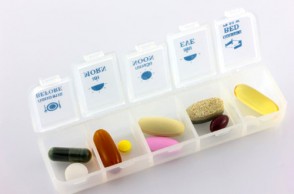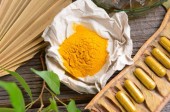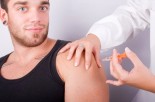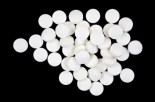Canceled Clients (4762)
Children categories

Train Your Body (438)
The show for fitness buffs or beginners. Expert guest from the American College of Sports Medicine (ACSM) discuss all areas of fitness, nutrition, athletics and sports medicine.
View items...
Staying Well (382)
RadioMD’s “talking” Health A-Z hosted by senior health correspondent, Melanie Cole, MS. Melanie interviews experts in the world of health, wellness, fitness and medicine.
View items...
Healthy Talk w/ Dr. Michael Smith (698)
Integrative physician, Michael A. Smith, MD is committed to providing listeners with the most current health information available.
View items...
Naturally Savvy (899)
Registered Holistic Nutritionist, Andrea Donsky and health expert Lisa Davis discuss their passion for living a natural, healthy lifestyle.
View items...
Eat Right Radio (48)
EatRight Radio, with experts from the Academy of Nutrition and Dietetics, discusses food and nutrition topics, healthy weight, allergies and health conditions, healthy aging, food safety and so much more. Give us 10-minutes and we'll give you the important information and expert advice from registered dietitian nutritionists to help you eat right, feel better, and live a healthier life. Hosted by Melanie Cole, MS.
View items...
Sharecare Radio (235)
Sharecare Radio, hosted by Sharecare’s own Dr. Darria Long Gillespie, SVP of Clinical Strategy at Sharecare, will appear live every Tuesday from 12 to 1 p.m. EST on RadioMD. Dr. Darria will break down the top health news of the week, pull in experts from around the country on a wide array of health topics and answer listeners’ live questions on all things health.
View items...
Wellness for Life (455)
On Wellness For Life Radio you will learn practical, easy-to implement tips to improve your life and start feeling better — the natural way.
View items...
The Wizard of Eyes (163)
Dr. Robert Abel Jr. talks about many of the important and unrecognized parts of our visual system which we so often take for granted. The show covers the usual common ocular disorders with an East/West approach to both prevention and therapy. The eye-brain connection is presented with information about memory retention, Alzheimer's, the myopia epidemic, and many more subjects. Dr. Abel discusses how the eye and vision are connected with remote parts of the body including your gut flora, musculoskeletal system, blood pressure, drugs and lifestyle. practical and simple health tips.
View items...
Code Delicious with Dr. Mike (135)
Code Delicious with Dr. Mike breaks all the rules. Unabashedly confronting the questions, concerns and conundrums that continually confuse both public and experts alike; Dr. Mike takes us on a tasty trip of inquiry.
View items...
CLEAN Food Network (98)
This show is a call to action for all the clean eating revolutionaries that care about their health and how and what they eat. Non-GMO, natural, organic . . . food the way nature intended. The clean food movement is huge and is growing exponentially. This companion program talks to experts in food preparation, healthcare, celebrities, and even those companies that care enough to provide the best, wholesome, organic foods and groceries.
View items...
Talk Healthy Today (213)
Looking to create your best self? Whether it’s good-for-you lifestyle hacks, smarter ways to supplement, or tasty tips to fuel optimal health, Talk Healthy Today brings you the latest research, tools, and common sense tips you need to get and stay healthy... starting today!
View items...
Be a Doer (17)
Be A Doer features master coach and TV personality John Abdo as he shares health and fitness tips aimed at getting you in shape – and keeping you there!
View items...The Power of Probiotics (3)
Probiotics is a major global industry. But like any industry, it had to have a beginning. Natasha Trenev is the daughter of an Eastern European family where the manufacturing of yogurt was a generational business. When Natasha emigrated to the US in the 1960’s, she brought with her 750 years of family experience with probiotics – and introduced the science (and the term itself) to her new country. Today, Natasha’s California-based Natren, Inc. is the recognized pioneer in probiotics and company founder Natasha Trenev has earned recognition as the Mother of Probiotics. Her more than 50 years of work in natural health is at the core of the unparalleled success of her company – and you will benefit from her depth of expertise in each and every episode of THE POWER OF PROBIOTICS.
Probiotics are live microrganisms that are commonly referred to as ‘friendly,’ ‘good’ or ‘healthy’ bacteria that function to help maintain the natural balance of organisms in the intestine. Throughout Natasha’s extensive work in the field of probiotics, she has always been amazed by how nature provides the very ‘good’ bacteria that can help overpower ‘bad’ bacteria to keep our digestive tracts functioning at peak performance. Properly cultivating friendly bacteria and ensuring their potency is at the core of the Natren Process. Natren is cited – by retailers, by the medical community and by consumers – as the best probiotic supplement available. Only Natren carefully chooses its probiotic cultures, formulates and manufactures its industry standard probiotics in its own plant and utilizes a specially-formulated oil matrix to protect probiotics bacteria to survive until they reach their destination in the upper small intestine. This is why only Natren is the most trusted probiotic supplement on the market. Truly, where other probiotic supplements promise – Natren Delivers.
To learn more about how probiotics can benefit your health, we are proud to introduce you to THE POWER OF PROBIOTICS with The Mother of Probiotics, Natasha Trenev.

Your Brain Health (24)
Noted Los Angeles-based neuroscientist and media personality Dr. Kristen Willeumier launches Your Brain Health with Dr. Kristen Willeumier, a podcast series that explores the latest news and information in the burgeoning science of brain health.
View items...Additional Info
- Segment Number 4
- Audio File healthy_talk/1507ht1d.mp3
- Featured Speaker Gretchen DuBeau, Executive Director, Alliance for Natural Health USA
- Organization Alliance for Natural Health USA
-
Guest Bio
 Gretchen DuBeau joined the Alliance for Natural Health USA (formerly the American Association for Health Freedom) as Executive and Legal Director in 2008.
Gretchen DuBeau joined the Alliance for Natural Health USA (formerly the American Association for Health Freedom) as Executive and Legal Director in 2008.
A lifelong environmentalist and devotee to natural health and healing, Gretchen has found the perfect culmination of her interests at ANH-USA, where she works to shift the current medical paradigm to one that embraces real preventive and integrative medicine as the standard of care.
Gretchen also serves as President and Executive Director of the Praktikos Institute, and as Advocacy Coordinator for ANH-International. In 2014, she was appointed President of the Axios Institute.
She is an attorney and practiced environmental law and policy for five years before joining ANH to work on natural and sustainable health issues.
Gretchen holds a Masters Degree in Applied Healing Arts. She supports the Integrative Medicine Consortium (IMC) as the Public Affairs Chair and the Public Policy Co-chair, serves as Board Advisor to the International College for Integrative Medicine (ICIM), and joined the boards of the ANH-USA in 2010; the Certification Board for Nutrition Specialists (CBNS), where she serves as Treasurer, in 2011; ANH-International and the Institute for Responsible Technology in 2012; and the Praktikos Institute in 2014. - Length (mins) 10
- Waiver Received No
- Internal Notes NO GUEST
- Host Mike Smith, MD
Additional Info
- Segment Number 3
- Audio File healthy_talk/1507ht1c.mp3
- Featured Speaker Natalie Strand, MD
- Book Title A Woman's Guide To Diabetes: A Path To Wellness
-
Guest Bio
 Natalie Strand, MD, is a physician who has been living with diabetes for over 23 years and co-author of A Woman's Guide To Diabetes: A Path To Wellness.
Natalie Strand, MD, is a physician who has been living with diabetes for over 23 years and co-author of A Woman's Guide To Diabetes: A Path To Wellness.
She gained national attention as part of the first female team to win the CBS reality series The Amazing Race. "Dr. Nat" continues to inspire millions of people as a motivational speaker and spokesperson, by connecting with the diabetes community across multiple media platforms and providing practical insights on dealing with the daily realities of diabetes.
She works extensively to promote an active lifestyle in people living with diabetes. - Length (mins) 10
- Waiver Received No
- Host Mike Smith, MD
Additional Info
- Segment Number 2
- Audio File healthy_talk/1507ht1b.mp3
- Featured Speaker Natalie Strand, MD
- Book Title A Woman's Guide To Diabetes: A Path To Wellness
-
Guest Bio
 Natalie Strand, MD, is a physician who has been living with diabetes for over 23 years and co-author of A Woman's Guide To Diabetes: A Path To Wellness.
Natalie Strand, MD, is a physician who has been living with diabetes for over 23 years and co-author of A Woman's Guide To Diabetes: A Path To Wellness.
She gained national attention as part of the first female team to win the CBS reality series The Amazing Race. "Dr. Nat" continues to inspire millions of people as a motivational speaker and spokesperson, by connecting with the diabetes community across multiple media platforms and providing practical insights on dealing with the daily realities of diabetes.
She works extensively to promote an active lifestyle in people living with diabetes. - Length (mins) 10
- Waiver Received No
- Host Mike Smith, MD
Additional Info
- Segment Number 1
- Audio File healthy_talk/1507ht1a.mp3
- Organization Life Extension
- Guest Website Healthy Talk MD
- Length (mins) 10
- Waiver Received No
- Internal Notes NO GUEST
- Host Mike Smith, MD
Additional Info
- Segment Number 5
- Audio File healthy_talk/1506ht5e.mp3
- Organization Life Extension
- Guest Website Healthy Talk MD
-
Transcription
RadioMD Presents: Healthy Talk | Original Air Date: Friday, February 6, 2015
Host: Mike Smith, MD
Dr. Mike: Okay, let’s go on with your questions. This next one I had to do some research on. Quite honestly, I didn’t know the numbering system for plastics. Let me just read the question first: “Please review how plastics are rated. It’s quite confusing and I believe it is critically important to know which plastics never to use.”
I agree. Plastics are numbered, first of all. You can take a water bottle and you can look on the bottom of it. Any form of plastic, somewhere on the bottom usually there’s a number, a diamond shaped thing with a number in the middle. This number can be anywhere between 1 and 7. I think that what people believe is that the lower the number the worse the plastic and the higher the number the better. I think that’s what most people believe. That’s not true. For instance, real quickly, a plastic labeled #2 is actually perfectly fine for food and stuff like that, but a plastic #7 might not be. It’s really just a miscellaneous category for all kinds of plastics. See how it’s kind of confusing? So I had to do my research. I got this from the USDA, www.USDA.org. I’m going to go through these There are plastics 1, 2, 3, 4, 5, 6, and 7.
Plastic #1, again you will find this on the bottom of the packaging. Plastics marked with the SPI code of 1 is made with polyethylene terephthalate, which is also known as PETE. It can be recycled. This is not a good plastic. This one can absorb into food and into your environment. As a matter of fact, thalates, which is what this is made out of, thalates, as a chemical compound, are very bad for the human body. I don’t use plastics with the #1 code because of the thalates.
The SPI code of 2 identifies plastics made with high-density polyethylene, or HDPE. These products are very safe and are not know to leach any chemicals into food or drinks. They can be recycled. It is often used for toys and it should be just fine, so #2 is good.
By the way, some of the interpretation of what I’m reading is coming from me, not necessarily the USDA. As a matter of fact, back up to #1 and the thalate component of #1. They didn’t say anything about thalates, which I find horrifying. There are many studies showing cancer issues and nerve issues. They raise oxidative stress. Thalates are bad and they didn’t say anything about that on the USDA website. I’m reading to you what they say and I’m interpreting it the best I can. Plastics #1: No, no, no because of the thalates. Plastics #2, which are made with the high-density polyethylene, are probably okay.
Dr. Mike: Plastics labeled with the SPI code of 3 are made from polyvinyl chloride, or PVC. So maybe okay for pipes, but that’s about it. The chloride will leach; you have to be a little bit careful. When they make the PVC pipe, my understanding is that they coat the inside so there’s less chance of that chloride leaching, but that’s not always the case. That’s why it’s important, if you live in a place with PVC and not copper pipe, to make sure you are filtering that water.
Plastics marked with the SPI code of 4 are made with low-density polyethylene. It’s not really recycled all that much. It also says here that it is not known to release harmful chemicals into objects in contact with it, making it a safe choice for food storage. That’s what the USDA says. I had to look that one up. I did go to some other sites and did confirm, most of them thought that a plastic rated #4 would be okay, but not as good as #2.
So you can see that just because the number is higher, doesn’t mean that the plastic is as good. Right now, #2 would be the best so far and #4 would be okay.
Consumers will find the SPI code of 5 on items made from polypropylene, or PP. PP can be recycled but it is not acceptable for recycling in many cases. This kind of plastic is strong and can withstand high temperatures. This is the type you want to see in Tupperware. So plastics that are rated #5 are going to be things you cook with. #2 is going to be more drinking water stuff.
So far, out of 1-5, #2 plastics and #5 plastics are probably the best ones to use.
Plastics marked with the SPI code of 6 are made with polystyrene, this is basically Styrofoam. It can be okay for short periods of time, coffee cups and plastic food boxes, but some of that polystyrene will leach, so it’s not the best. So again, you see the higher the number is not necessarily good.
Lastly, #7. The SPI code of 7 is used to designate miscellaneous types of plastics, and they list all kinds of stuff. Plastics #7 could be made from just about anything.
#1 plastics, with that thalate component; no way, don’t use it. #7, because you just don’t know what it is; no, don’t use it. #6 is not good at all, leaving you with plastics #2 and #5 for drinking and eating. If you are going to heat plastic, and people throw plastics into the microwave all the time, use #5. #5 plastics can withstand heat according to the USDA.
Did that help? I hope it did. It was a great review me. I had seen some of this information before and I just didn’t remember a lot of it, but I did remember that just because plastics have a higher number doesn’t mean it’s safer. Plastics #2 and #5 are the best ones to use. Okay, that takes care of my plastics question. I was worried about that one.
How am I doing on time? I think I’m just about done. I’ve got 2 minutes; I can do this one in 2 minutes. “Is it true that women who place their cell phones in their bras are at higher risk of breast cancer?”
Dr. Mike: It doesn’t sound good to do that right? When I was teaching a class once, I had a rule in my class of no cell phones and I think that’s legitimate. A woman just put it in her bra; it was on her desk and she just picked it up and put it in her bra. I told her that that might not be the best place to put your cell phone. Women do it. It doesn’t sound like something you should be doing. However, I looked this up. I went to www.Cancer.org and they report there that there is no clinical evidence. But if you ask around to oncologists and radiation specialists, many say that’s it’s probably not best to do that. It’s best to carry it away from your body, maybe in a purse or something like that. That just makes a little more sense. So, www.Cancer.org says that there is no clinical evidence that a cell phone in the bra will increase your risk for breast cancer, but if you really get down to it and question some of the experts, they will tell you that it’s not probably the best place to put it. Let’s put it in our purses and keep the cell phones away from your body as much as possible. They are creating EMF, electro-magnetic frequencies and radiation. Those have been shown to disrupt DNA and cause mutations. Be careful there and keep the cell phone off your body.
There you go. I those were some nice questions. I want to thank my listeners for sending those in. Thank you to Sheldon Baker, a great producer. Thank you to Life Extension, for all the great information. Thank you to Kevin, for helping me out. This is Healthy Talk on RadioMD. I’m Dr. Mike, stay well. - Length (mins) 10
- Waiver Received No
- Internal Notes NO GUEST
- Host Mike Smith, MD
Additional Info
- Segment Number 4
- Audio File healthy_talk/1506ht5d.mp3
- Organization Life Extension
- Guest Website Healthy Talk MD
- Length (mins) 10
- Waiver Received No
- Internal Notes NO GUEST
- Host Mike Smith, MD
Additional Info
- Segment Number 3
- Audio File healthy_talk/1506ht5c.mp3
- Organization Life Extension
- Guest Website Healthy Talk MD
- Length (mins) 10
- Waiver Received No
- Internal Notes NO GUEST
- Host Mike Smith, MD
Additional Info
- Segment Number 2
- Audio File healthy_talk/1506ht5b.mp3
- Organization Life Extension
- Guest Website Healthy Talk MD
- Length (mins) 10
- Waiver Received No
- Internal Notes NO GUEST
- Host Mike Smith, MD
Additional Info
- Segment Number 1
- Audio File healthy_talk/1506ht5a.mp3
- Organization Life Extension
- Guest Website Healthy Talk MD
- Length (mins) 10
- Waiver Received No
- Internal Notes NO GUEST
- Host Mike Smith, MD














